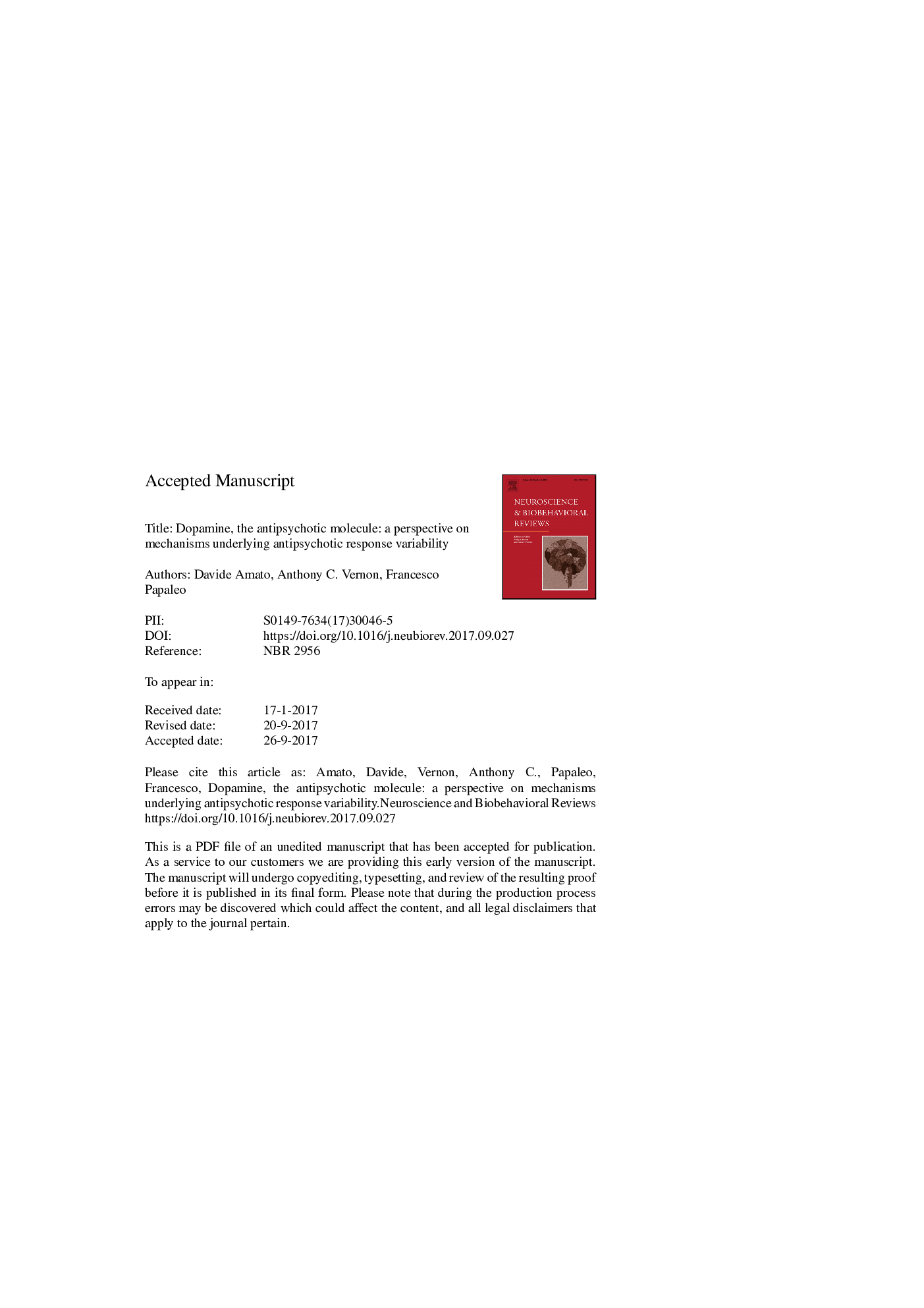| Article ID | Journal | Published Year | Pages | File Type |
|---|---|---|---|---|
| 7302170 | Neuroscience & Biobehavioral Reviews | 2018 | 56 Pages |
Abstract
Here, we hypothesize that clinically effective doses of antipsychotics would lead to the formation of a D2 receptor “reserve” that is likely composed of presynaptic dopamine D2 autoreceptors. The majority of the remaining postsynaptic dopamine receptors are instead occupied by antipsychotics. Endogenous dopamine would then mainly interact with this D2 autoreceptor reserve, thereby reducing the presynaptic synthesis and release of dopamine and resulting in an indirect antipsychotic effect. This new proposal reconciles conceptual and empirical gaps encountered when clinical outcomes are compared to the pharmacology of antipsychotics.
Related Topics
Life Sciences
Neuroscience
Behavioral Neuroscience
Authors
Davide Amato, Anthony C. Vernon, Francesco Papaleo,
